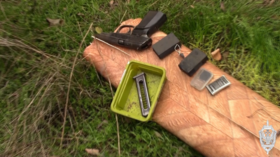India and Russia link up to boost trade
Like tea and biscuits, different but complimentary. Russia and India stand at the heart of the BRICs, the emerging markets that investors love to love.
Russia's Prime Minister Vladimir Putin, on day two of his visit to India, called for trade to move into new sectors.
Companies from India and Russia signed a range of deals from oil and nuclear technology to diamonds. The traditional sectors – dominated by government contracts:
Two reactors at Kudankulam nuclear power plant, and a joint venture to produce GLONASS-enabled satellite navigation equipment.
But Russia wants to double trade turnover this decade and that means turning to the private sector. Sistema head, Vladimir Evtushenkov says his company has lead the way.
“We are the first company to massively invest into the private sector, bringing high technology to India. Telecommunications is not the only high tech sector we are involved in – we are also involved in the Glonass project.”
The last meeting between Putin and Dr Singh in Moscow in December 2009 failed to generate any big deals. India's soil proved more generous, with an estimated $10 billion worth. They key question from businessmen – was how to get into Russia's financial sector. Prime Minister Putin welcomed Indian financiers to the Russian market.
“There is a possiblity to open direct subsidiaries with 100% ownership, I’s also possible to create a joint venture with Russian companies – the doors are open.”
But the reality, for now, is that Russia is primarily a commodity exporter – supplying India's hungry manufacturing sector. Uralsib Chief Strategist, Chris Weafer, says that makes the countries a well-matched couple.
“Russia has an overabundance in raw materials and commodities. India needs to import most of itsv raw materials. And the Indian economy is very strong in technology and entrepreneurial type businesses and manufacturing, exactly the sort of businesses that Russia needs to develop and needs to grow. Essentially what I believe is happening is a sort of barter at a Prime Minister level. On the one hand Prime Minister Putin is offering access to Russia's energy and commodity sector, and on the other hand the Indian Prime Minister will be bartering investment in manufacturing and technology into Russia.”
Putin confessed a love of Indian tea – not surprisingly as the USSR was the biggest market for Indian Tea. Since then, Russia has become the number two market for Indian coffee, after Italy. It's a sign that in trade, even the oldest traditions can quickly change.











